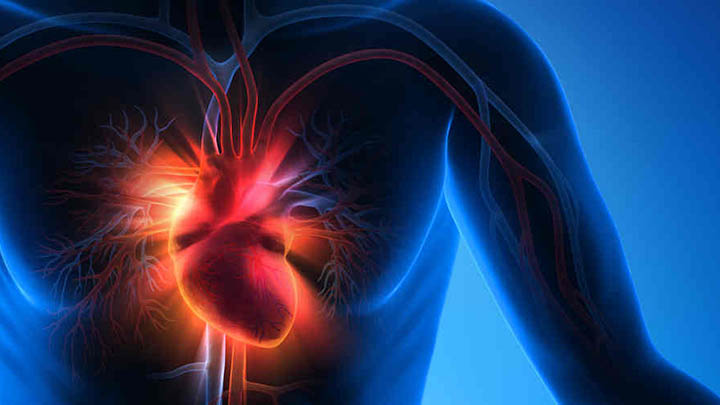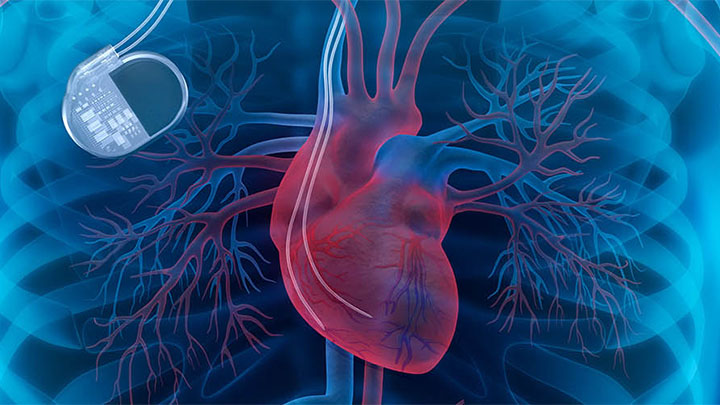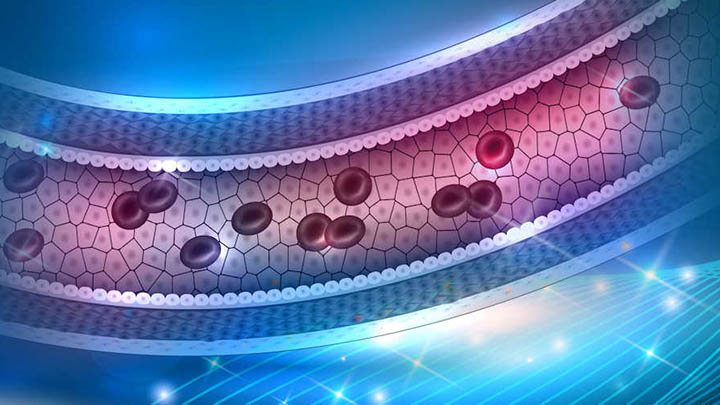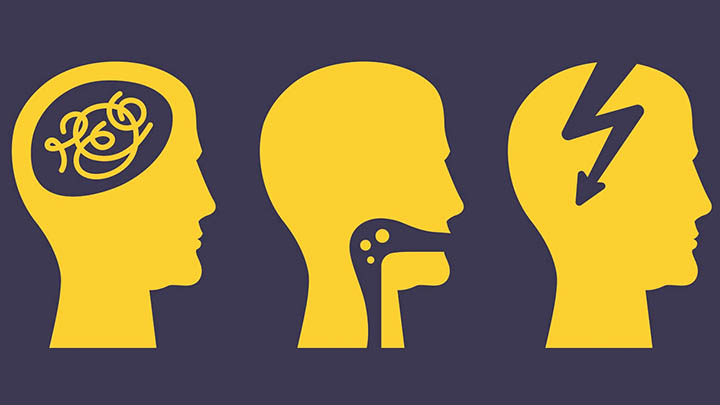Putting people at the heart of our research to create real-world impact.
Diseases affecting the heart and circulatory (cardiovascular) system including hypertension, coronary artery disease, heart failure, stroke and dementia account for over a quarter of all deaths.
We co-ordinate heart and circulatory research across both the University and regional health and care partners, using a ‘team science’ approach to build multi-disciplinary teams that share expertise.
Our researchers utilise highly innovative methods, interdisciplinary approaches and collaborate internationally to understand the causes and consequences of heart and circulatory disease.
We use this information to help identify and evaluate novel therapies and ways to manage patients and save lives.
Together, we are using our research to improve outcomes for patients and reduce the societal burden of heart and circulatory disease.
7.6 million people in the UK live with heart and circulatory disease.
Globally, 64 million people suffer with heart failure.
Hypertension costs the NHS an estimated £2 billion per annum.
Source: British Heart Foundation, 2022.
Why Manchester?
Addressing a local problem, benefitting global communities.
Greater Manchester and the north-west have the highest incidence of, and deaths from, heart and circulatory disease nationally.
Integrated healthcare
Greater Manchester is home to a pioneering integrated healthcare system, the NIHR Biomedical Research Centre, as well as interdisciplinary discovery science platforms and technologies across the University.

A local population with complex factors affecting health
Manchester acts as a global testbed for improved understanding of the complexities of the underlying factors leading to heart and circulatory disease, and the impacts of health inequalities, multimorbidity and population diversity.

Global impact
We are addressing the health challenges that face our region. We can be confident that what works here is likely to be applicable worldwide. Lessons learnt in Manchester that are benefiting global populations.

Our impact
Impact is the benefit our research brings to the world.
Our innovative, interdisciplinary and international collaborative research is reducing the burden of heart and circulatory disease in many ways.
Our impact extends from consideration of how a person’s genetic make-up, modelling risk and early detection of disease through to patient interventions, predispose an individual to the development of heart and circulatory disease.
Underpinning the development of this impact is the breadth of fundamental discovery, experimental and applied medicine research being performed by our individual researchers and across our divisions, schools, faculties, research platforms and institutes.
Explore our impact in heart and circulatory research in the following areas:
Early detection and prevention
A key step in initiating appropriate treatments.
Early detection also allows for the rapid discharge from hospital of patients not requiring treatment.
Rapid testing for acute coronary syndromes
Our work in the emergency department has helped develop ultra-high sensitivity blood tests and rapid decision-making tools for patients suspected of having had a heart attack, allowing for quicker treatment, improved recovery and earlier discharge.
Read the story : Rapid testing for acute coronary syndromes.

Identifying and managing cardiovascular risk in rural Indonesian communities
Diseases of the heart and circulatory system are often linked with modifiable lifestyle factors and as such are preventable. Working with partners in Indonesia we’re raising awareness of these factors and identifying people at risk in underserved communities.
Read the story : Identifying and managing cardiovascular risk in rural Indonesian communities.

Managing risk and understanding mechanisms
Achieving successful outcomes in patients with heart and circulatory disease.
Managing these conditions is dependent on being able to predict when to intervene and modify treatment plans.
Research highlights
Heart failure and abnormal heart rhythms are leading causes of sudden death for which available treatments are either ineffective or poorly tolerated by patients.
Researchers at Manchester have shown that Viagra-like drugs are very effective at preventing the progression of heart failure and abnormal heart rhythms.
Researcher profile: Professor Andrew Trafford
Heart failure remains the leading cause of mortality in diabetes. We use genetic engineering technologies to identify genes function in the heart, which provides evidence on pathogenesis and therapeutic targets of heart failure in diabetes.
In addition, large-scale screening methods on patients’ serum will explore novel diagnosis markers for heart failure.
Researcher profile: Dr Vicky (Wei) Liu
Heart failure is the condition that heart fails to supply blood to the whole body. One particular type of heart failure (HFpEF) is caused by high blood pressure and nutrient overload and has few effective treatments.
Such failing heart experiences misfolded proteins packing up in cardiac muscle cells that leads to poor energy generation, worsening heart function and eventually the death of heart muscle cells. We have identified that Pak enzyme is a heart protector and developed novel compounds to harness Pak activity, thus hopefully treating HFpEF.
Researcher profile: Professor Xin Wang
New digital heart failure care pathway reduces hospital admissions in Greater Manchester
Our researchers are using information obtained from patients’ pacemakers to identify changes in the patient’s condition. With this data, clinicians are able to alter the patient’s medication and lifestyle before their symptoms deteriorate.

Improving patient adherence to high blood pressure medication
We developed a urine test to determine if patients with high blood pressure are taking their medicines, so healthcare professionals can work more effectively with them and reduce complications from high blood pressure later in life.
Read the story : Improving patient adherence to high blood pressure medication.

Developing tools to help predict future risk for diabetes and heart attack
Using large patient datasets, we are developing tools to enable GPs to identify which patients are at greatest risk of developing heart and circulatory disease as a consequence of their diabetes, and the risk of future heart attacks in patients who have previously had a heart attack.
Read the story : Developing tools to help predict future risk for diabetes and heart attack.

Understanding heart damage caused by turbulent blood
Researchers have developed more accurate computer models of blood flow through vessels and across heart valves. These will help improve surgical approaches to correcting blood vessel and heart valve disorders and enable clinicians to better interpret MRI images.
Read the story : Understanding heart damage caused by turbulent blood.

Heart and circulatory disease in pregnancy
Preventing complications during and after pregnancy.
During pregnancy and after birth both mother and baby are at risk from complications that can occur due to conditions in the heart and circulatory system. We’ve been studying the factors associated with the risk of stillbirths and have identified several interventions that can help prevent it.
Research highlight
Complications during pregnancy can limit the amount of oxygen a baby receives. This condition, known as prenatal hypoxia, can seriously harm the fetal heart and increase the likelihood that a child will develop heart disease later in life.
In conjunction with the University of Cambridge, University of Manchester researchers are trying to develop therapies to protect hypoxic babies and prevent heart disease developing in adulthood.
Researcher profile: Dr Gina Galli
Shaping healthcare guidelines to prevent and reduce stillbirths
Our understanding has led to the development of preventative care packages which are being deployed around the world to reduce the occurrence of stillbirth.
Read the impact case : Shaping healthcare guidelines to prevent and reduce stillbirths.

Increasing the availability of a simple blood test to diagnose pre-eclampsia
Our researchers have developed better diagnostic tests for pre-eclampsia, a potentially serious condition occurring in pregnancy that can affect both the mother and baby, and are assessing new treatment options to reduce the risk of complications.
Read the story : Increasing the availability of a simple blood test to diagnose pre-eclampsia.

Seeking to reduce future heart disease risk after pre-eclampsia
Our work in the emergency department has helped develop ultra-high sensitivity blood tests and rapid decision-making tools for patients suspected of having had a heart attack, allowing for quicker treatment, improved recovery and earlier discharge.
Read more about seeking to reduce future heart disease risk after pre-eclampsia.

Stroke, dementia and blood vessel diseases
Understanding and managing heart and circulatory conditions better.
Stroke, Alzheimer’ disease and vascular dementia are very common diseases affecting the heart and circulatory system. We are using a wide range of state-of-the-art approaches to improve our understanding and management of these conditions in order to improve patient outcomes.
Research highlights
Currently, the only approved treatment for stroke is recombinant tissue plasminogen activator (rt-PA) that helps breakdown the blood-clot, replenishing the blood supply to the brain.
However, this drug must be administered within 4.5 hours of stroke onset, is contraindicated in patients with ongoing bleeding and is not effective against all clot types. We have developed an alternative treatment that can overcome these limitations.
caADAMTS13 is a novel clot-busting drug which is showing great promise in pre-clinical trials by reducing the brain damage and associated inflammation in the brain after a stroke.
Researcher profile: Dr Kieron South
There are currently no specific drug therapies for ICH patients, therefore an urgent requirement to advance pre-clinical strategies to aid drug development for patients exists.
We have developed a new zebrafish drug screening platform for ICH which has shown that angiotensin-converting enzyme (ACE) inhibitors may offer neuroprotection.
Researcher profile: Dr Paul Kasher
Pneumonia is a serious complication after a stroke. Poor oral health contributes to the risk of developing pneumonia in people with a stroke.
Manchester is leading a clinical study to determine whether a definitive randomised controlled trial of oral healthcare interventions to prevent pneumonia is feasible in UK stroke units.
Researcher profile: Professor Craig Smith
There are 1.2 million stroke survivors in the UK and up to a third of those will develop post-stroke cognitive decline.
Manchester leads an international network to discover how inflammation and immune responses contribute to post-stroke cognitive decline. The network aims to ultimately develop treatments that reduce risk of developing dementia after a stroke.
Researcher profiles:
Hypertension affects 1 in 3 adults in the UK and is a major modifiable risk factor for cardiovascular disease.
Additionally, type-II diabetes affects 1 in 16 people. This project aims to characterise the role of eosinophils in perivascular fat and may lead to novel therapeutic approaches to hypertension and diabetes.
Researcher profile: Dr Sophie Saxton
New treatment for swallowing problems after stroke and brain injury
Find out how electrical stimulation is being used to help people with swallowing difficulties following a stroke or brain injury.
Read the story : New treatment for swallowing problems after stroke and brain injury.

Improving care for intracerebral haemorrhage patients
By developing a coordinated care package for patients and an app to support in-hospital decision making, our researchers have dramatically improved survival following a particular type of stroke.
Read the story : Improving care for intracerebral haemorrhage patients.

Improving long-term support for stroke survivors
Manchester researchers have also developed a toolkit that enables healthcare professionals to appropriately evaluate new and unmet needs of patients who have had a stroke and enable appropriate care to be implemented and support post-stroke recovery.
Read the story : Improving long-term support for stroke survivors.

Blood vessel breakthrough is major step towards dementia treatment
Our researchers have identified an important role for two proteins in the blood vessels of the brain which appear to be linked to the development of brain injury in Alzheimer’s disease and offer the prospect of new treatments for this condition.
Read the story : Blood vessel breakthrough is major step towards dementia treatment.

Genetics
Understanding the roles genes play in heart and circulatory conditions.
Research teams at Manchester are identifying how changes in our genes can lead to a range of congenital conditions in the heart and circulatory system.
Rapid genetic testing to reduce risk of secondary strokes in people with CYP2C19 gene mutations
A new genetic test to identify gene mutations that could reduce the effectiveness of a drug commonly prescribed after ischaemic stroke.

Increasing understanding of congenital heart disease and building research capacity in Africa
We are using this information to help build capacity to conduct genome wide studies of congenital heart disease in low- and middle-income countries and improve early diagnosis in these settings. The early detection of congenital heart disease allows for greatly improved clinical outcomes and reduces the risk of complications arising later in life.

Environment and health
Better understanding of how environmental factors can affect health.
Our researchers are studying different environmental issues such as air pollution to better understand their effects on the heart and circulatory system.
Assessing the impact of air pollution exposure in pregnancy on child development and health
A UK-wide project looking at the impact of exposure to indoor and outdoor pollution during pregnancy on baby development and child health.

Investigating the impact of polyaromatic hydrocarbon pollutants on heart function
Our researchers are aiming to learn more about the effects of polyaromatic hydrocarbon pollutants on our health.
Read the story : Investigating the impact of polyaromatic hydrocarbon pollutants on heart function.

